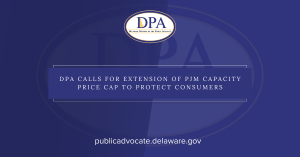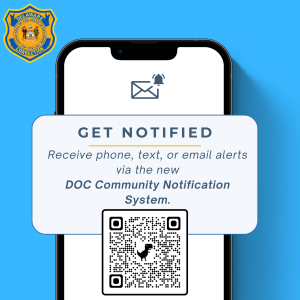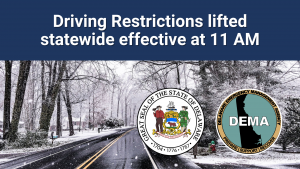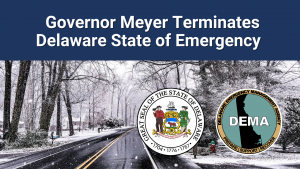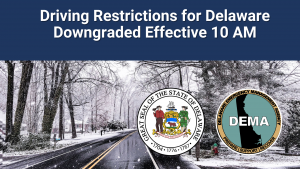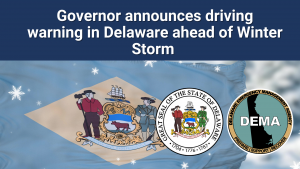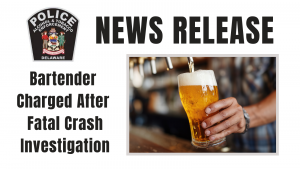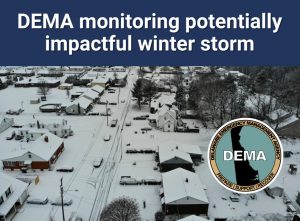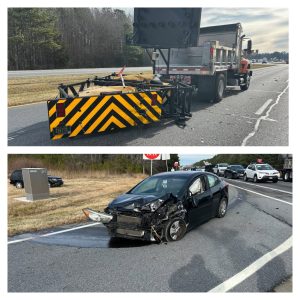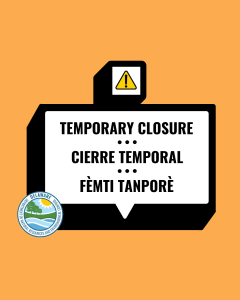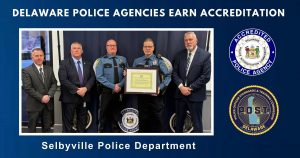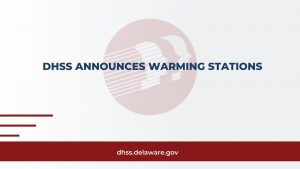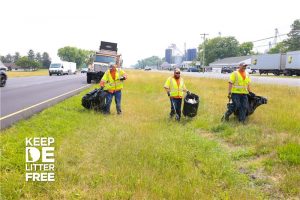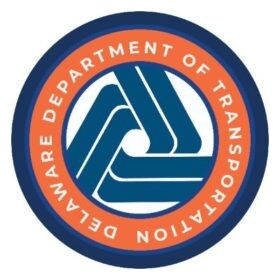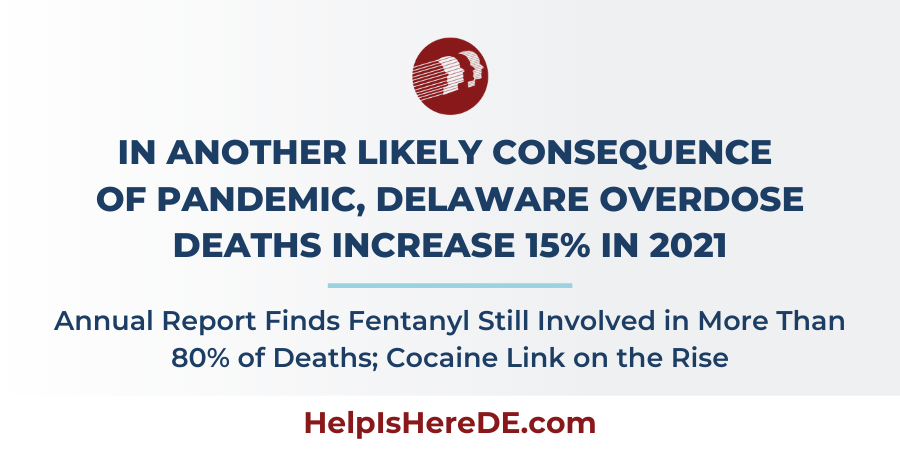
Division of Forensic Science Annual Report Finds Fentanyl Still Involved in More Than 80% of Deaths; Cocaine Link on the Rise
NEW CASTLE (May 24, 2022) – In what health officials fear is another consequence of the uncertainty associated with the COVID-19 pandemic, Delaware’s overdose deaths increased more than 15% in 2021 to a record high 515, according to the Delaware Division of Forensic Science’s annual report.
The Division of Forensic Science also reported 425 of the 515 deaths involved fentanyl, a synthetic pain reliever that is 50-100 times more potent than morphine. The percentage of total overdose deaths in 2021 involving fentanyl (82.5%) declined seven-tenths of a percentage point from 2020. The DFS report found a substantial increase in overdose deaths that involved cocaine, with the powerfully addictive stimulant found in 221 of the 515 individuals who died, an increase of almost 9 percentage points from 2020.
“Our worries about the impact that COVID-19 would have on Delawareans already struggling with substance use disorder appear to be borne out by the Division of Forensic Science report on overdose deaths,” said Department of Health and Social Services (DHSS) Secretary Molly Magarik. “At DHSS, we will continue to prioritize such harm-reduction strategies as training more loved ones to use Narcan, the medication that can reverse an opioid overdose, and to help more people in getting connected to the treatment they need to begin their recovery.”
To help Delawareans cope with stress and address behavioral health needs during the coronavirus pandemic, DHSS’ Division of Substance Abuse and Mental Health launched the 24/7 Delaware Hope Line – a single point of contact where callers can connect to a variety of resources and information, including support from clinicians and peer specialists plus crisis assistance. For support, Delawareans can:
- Reach the free Hope Line at 1-833-9-HOPEDE or 1-833-946-7333.
- Get behavioral health tips and reminders by texting DEHOPE to 55753.
- Search for treatment services and resources in Delaware or nearby states at DHSS’ one-stop website, HelpIsHereDE.com.
Joanna Champney, director of the Division of Substance Abuse and Mental Health (DSAMH), urged individuals in active substance use to consult with a medical provider immediately or to call the Delaware Hope Line to be connected to trained crisis professionals who can discuss treatment options. “The COVID-19 pandemic increased stress in people’s lives, negatively impacted mental health, and isolated people from services,” she said. “Coupled with the availability of illegal fentanyl, this created a very dangerous situation.”
“DSAMH is funding expansions of the continuum of care for substance use treatment services in each county – from withdrawal management to residential treatment, from outpatient treatment to sober living recovery residences,” Champney added. “For people who are uninsured or underinsured, the State will fund their treatment services. We’re also funding mobile treatment services and we have transportation services available. We want to reduce as many barriers to health care as possible.”
In its annual report for 2021, the Division of Forensic Science reported 515 overdose deaths, an increase of 15.2% over the 447 deaths reported in 2020. The 515 deaths by county:
- New Castle County: 334
- Sussex County: 94
- Kent County: 87
Of the 515 total deaths, 348 involved males (68%) and 167 involved females (32%). By race and ethnicity, 72% of the individuals who died were white (372); 24% were Black (122); 4% were Hispanic (20); and 1 was Asian.
The age category with the highest number of deaths was 31-40 with 144 (28%). The remaining age groups ranked by number of deaths:
- 41-50: 128 deaths (24.9%)
- 51-60: 115 deaths (22.3%)
- 61 or older: 64 deaths (12.4%)
- 21-30: 60 deaths (11.7%)
- 10-20: 2 deaths (0.4%)
Champney encouraged anyone who is using substances or suffering from addiction to call for help, see a medical provider, or ask a police officer or another first responder for help. “Too many times, our police officers, EMTs and other first responders see first-hand the dangers of overdoses,” she said. “Our first priority is to save lives. If you or someone you know is ready to get help, we invite you to walk into one of our Bridge Clinics for an assessment, or go to TreatmentConnection.com to find out which treatment providers are located near you.”
Under Delaware’s 911/Good Samaritan Law, people who call 9-1-1 to report an overdose and the person in medical distress cannot be arrested for low-level drug crimes.
Division of Public Health (DPH) Director Dr. Karyl Rattay urged those in active use to obtain Narcan, which is available through many sources including at participating pharmacies – where no prescription is required – at a DSAMH bridge clinic, during a Narcan training session, or through DPH’s Mail Order Naloxone program. The mail order program is free and available to anyone with a mailing address in Delaware requesting it as a private citizen through https://nextdistro.org/delaware
“Narcan saves lives,” Dr. Rattay said. “We urge anyone who is actively using illicit substances, as well as their family and friends, to have Narcan on hand, and be trained in how to use the overdose-reversing medication. Additionally, we encourage Delawareans to download OpiRescue Delaware, a smartphone app that provides lifesaving step-by-step instructions on how to respond to an overdose, including administering Narcan.”
To find training or distribution events, a participating pharmacy, or the Bridge Clinic in your county, go to HelpIsHereDE.com, and click on the overdose prevention tab.
In addition, Dr. Rattay praised Brandywine Counseling and Community Services’ Syringe Services Program, which provides outreach statewide. Brandywine Counseling’s mobile sites offer Narcan, fentanyl testing strips, and syringe services, and have a positive track record of connecting people to care for substance use disorder.
The Division of Substance Abuse and Mental Health’s Bridge Clinic locations and hours:
NEW CASTLE COUNTY
DSAMH Central Office
14 Central Ave.
New Castle, DE 19720
24/7
302-255-1650
New Castle County Hope Center
365 Airport Road
New Castle, DE 19720
Mon-Fri: 8:30 a.m.-9:30 p.m.
Sat-Sun: 8:30 a.m.-6:30 p.m.
302-544-6815
KENT COUNTY
James W. Williams State Service Center
805 River Road, Third Floor
Dover, DE 19901
Mon-Fri: 8:30 a.m.-4 p.m.
302-857-5060
SUSSEX COUNTY
Thurman Adams State Service Center
546 S. Bedford St.
Georgetown, DE 19947
Mon-Fri: 8:30 a.m.-4 p.m.
302-515-3310


